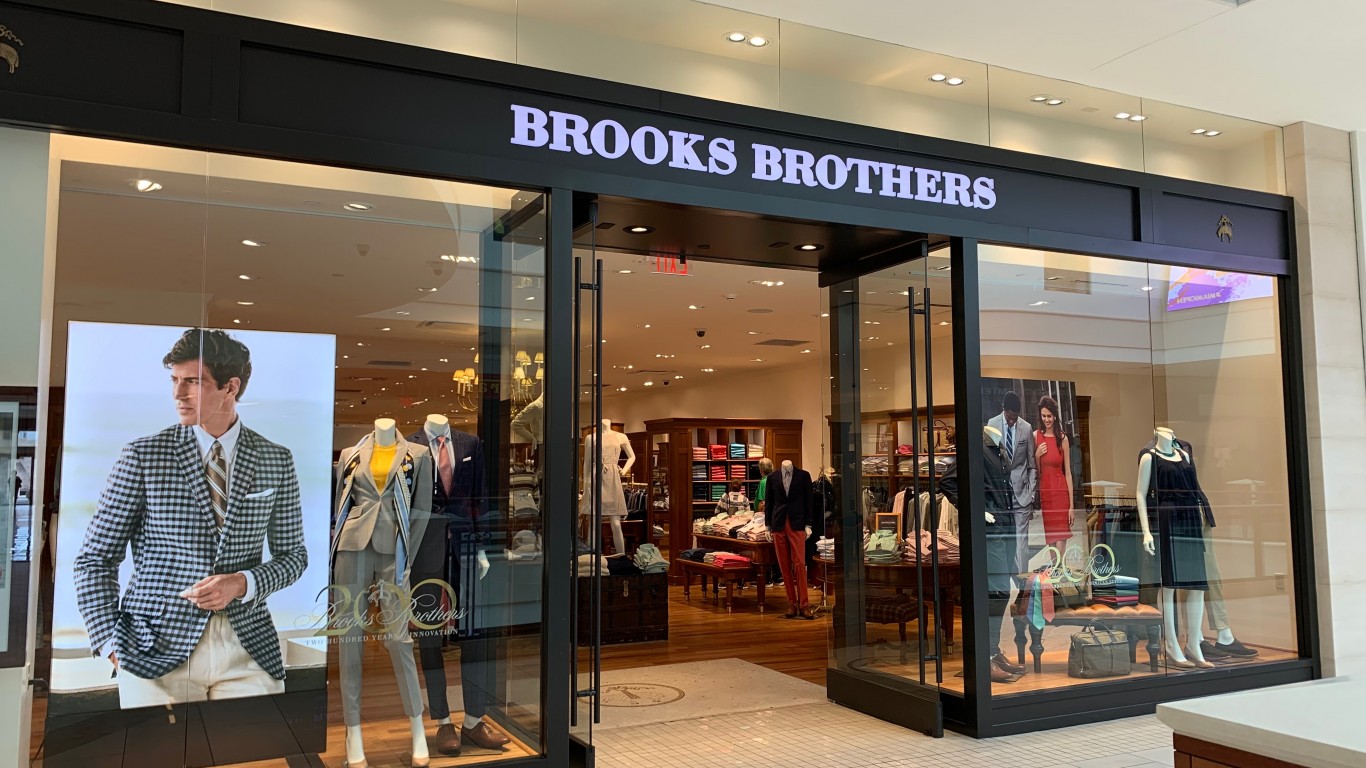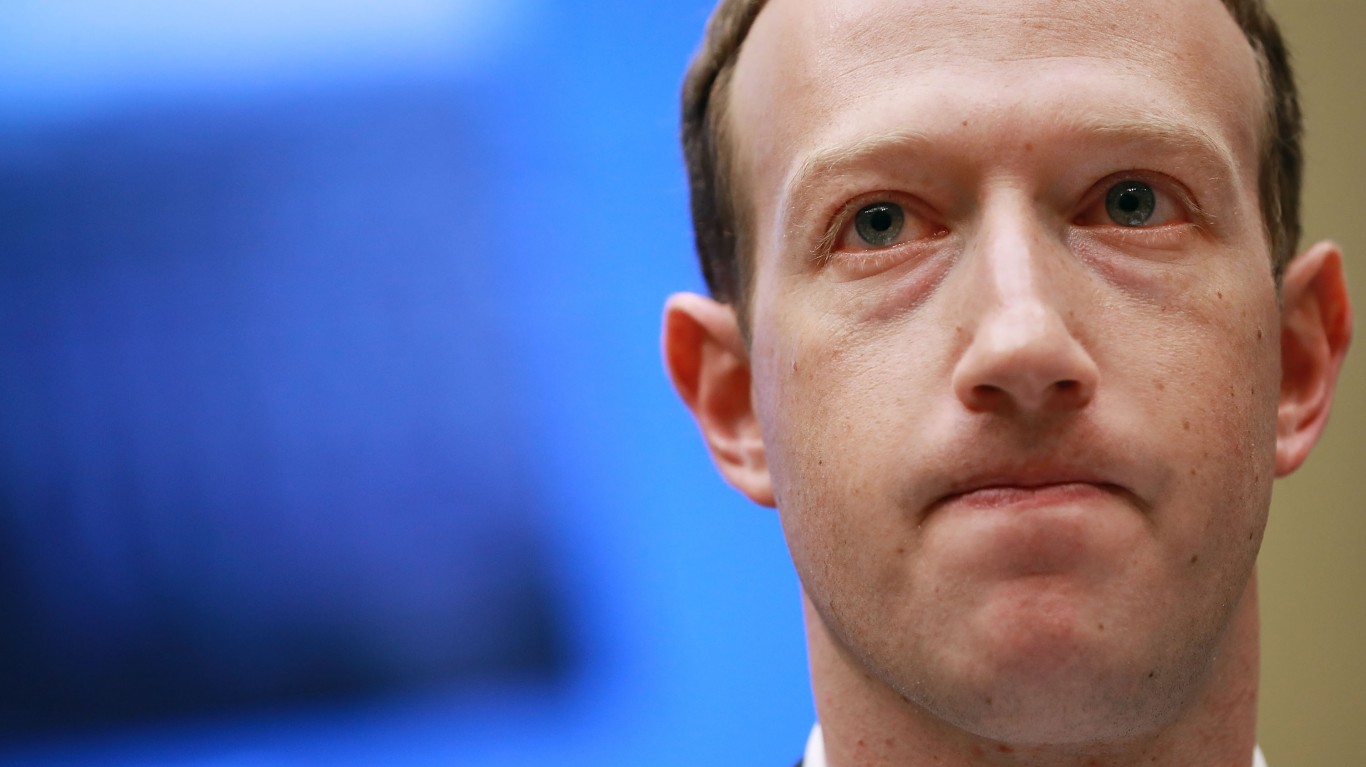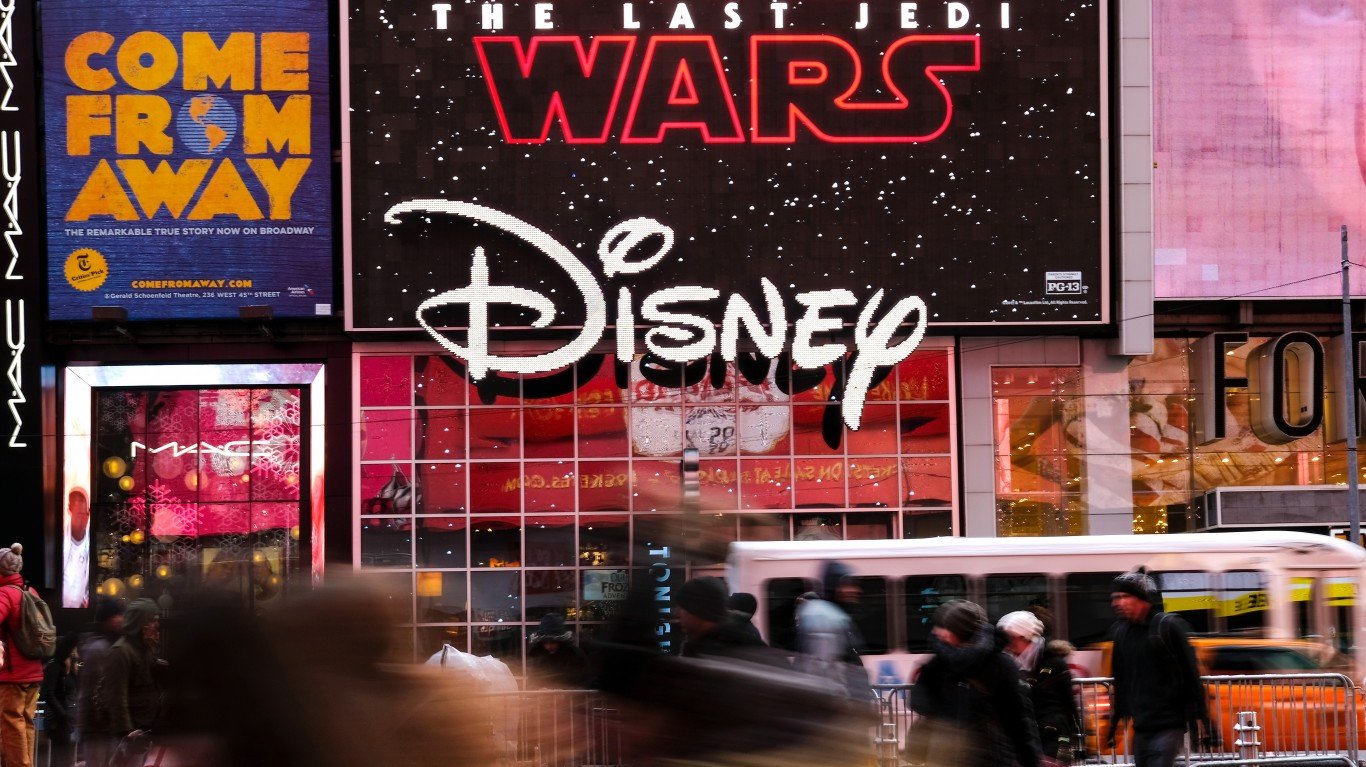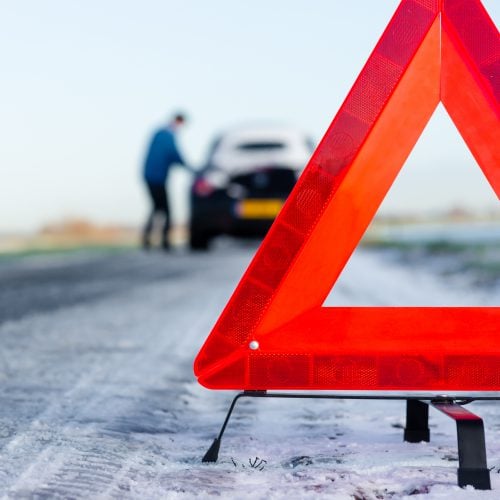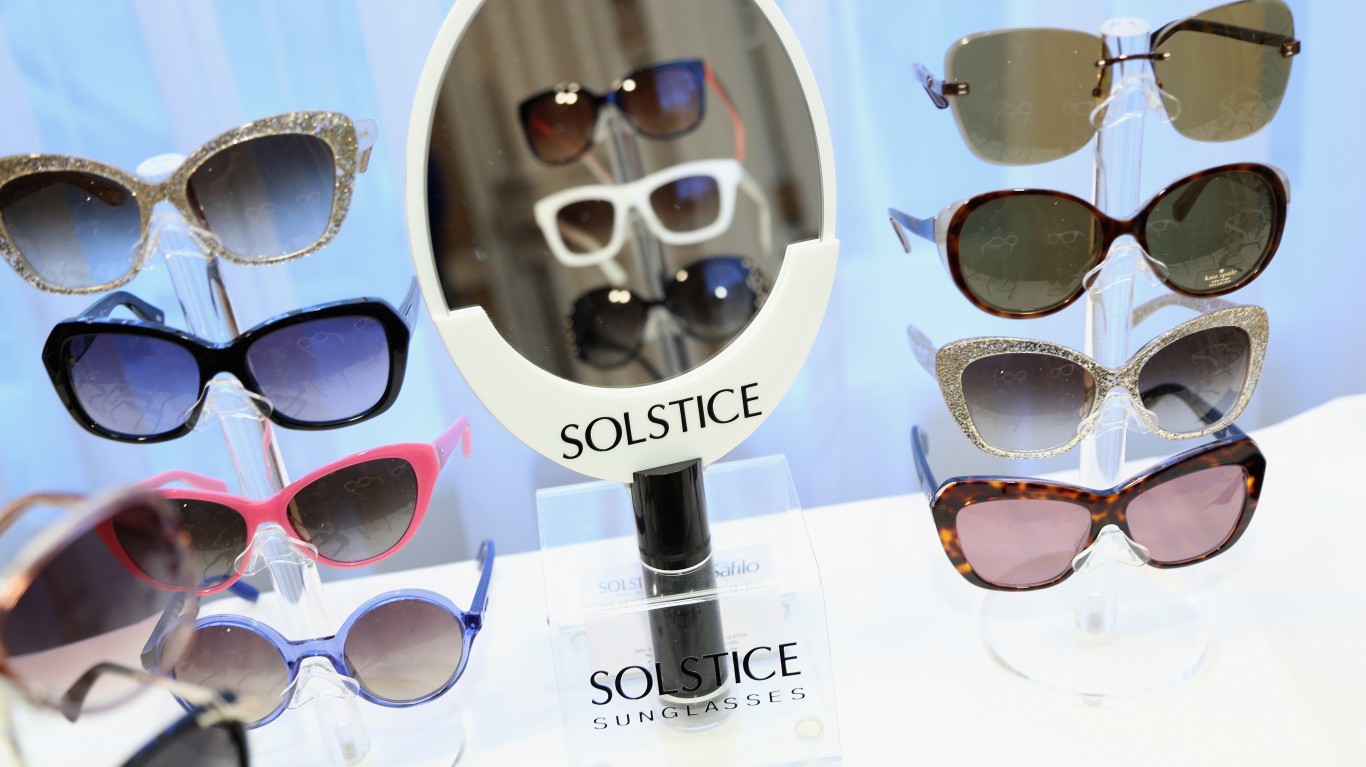

The U.S. economy is in the midst of one of its most turbulent periods in history. Of course, the COVID-19 pandemic made it difficult for many businesses to operate, and soaring inflation has made it difficult for some Americans to afford household items.
These challenges have been too much for some companies to handle — and a number of well-known brands are set to disappear in 2022. Some of these brands are being phased out because of poor management, while others are victims of shifting consumer preferences or the circumstances the pandemic has created.
To determine the brands that will disappear in 2022, 24/7 Wall St. reviewed press releases as well as company evaluations from sources like Standard & Poor’s to determine brands, companies, and product lines that will, or likely will, be phased out or go out of business in 2022.
Many of the brands that will disappear in 2022 are brick-and-mortar retailers, often clothing companies. These businesses have struggled to adapt to online shopping and the decline of malls in America — and their challenges were made that much worse during the pandemic, lockdowns, and different public health restrictions.
Several car models also feature on this list, as automakers pare down large lineups due to inventory constraints. Many of the vehicles are smaller sedans, which are being scuttled as Americans tend to want to drive larger vehicles like SUVs and crossovers.
A few companies that are slated to be dissolved in 2022 are failing because of mismanagement. These businesses failed to provide power to homeowners in an emergency or knowingly helped fuel America’s opioid crisis and are now being held to account. They are now facing huge lawsuits that will either put these companies out of business or will force them to rebrand so they can try to leave their negative reputations in the past. These are America’s most hated companies.
Click here to see famous brands that will disappear in 2022
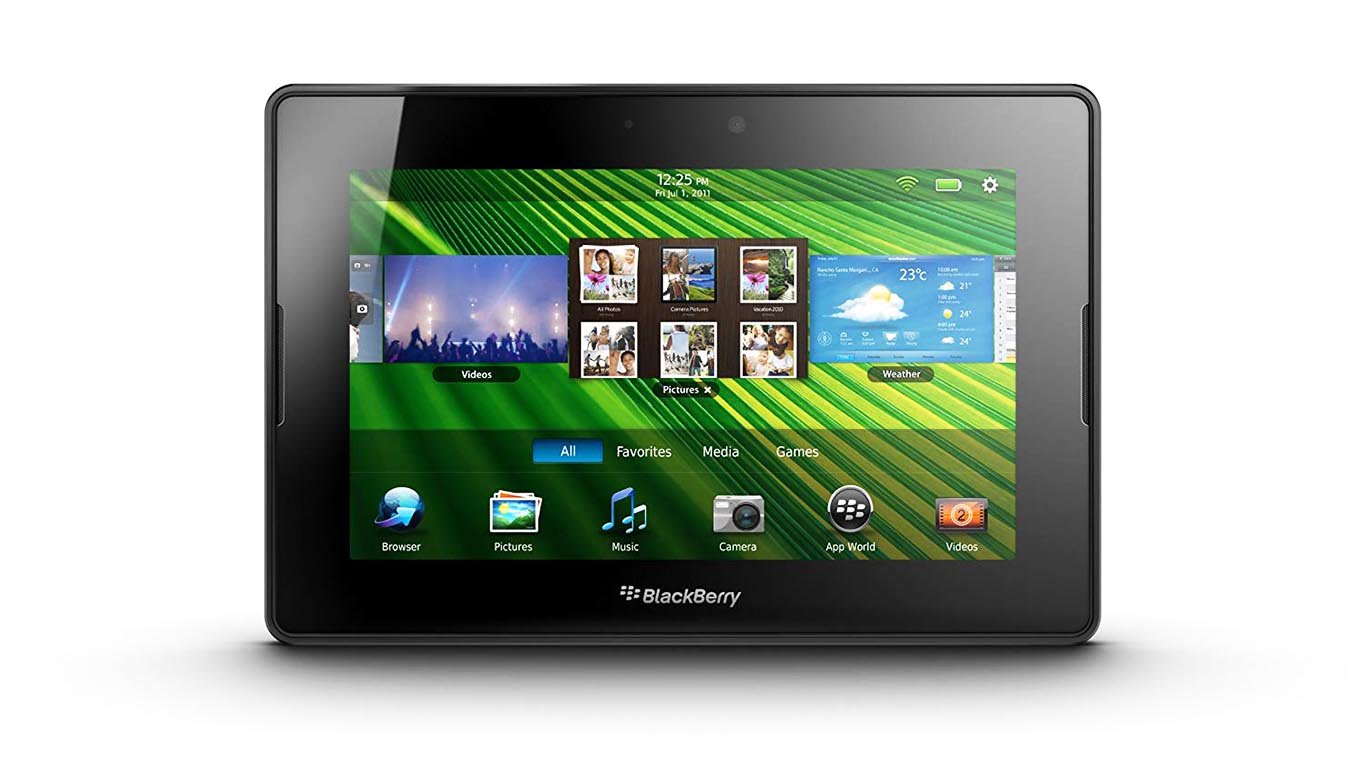
BlackBerry
BlackBerry, introduced by Research in Motion in 1999, used to be the gold standard for mobile devices. Its obituary has been reported before, but this time it really does look like the end. All functionality is supposed to end Jan. 4. The company said that as of this date, phones or tablets that run on the BlackBerry software “will no longer reliably function, including for data, phone calls, SMS and 9-1-1 functionality.”
[in-text-ad]
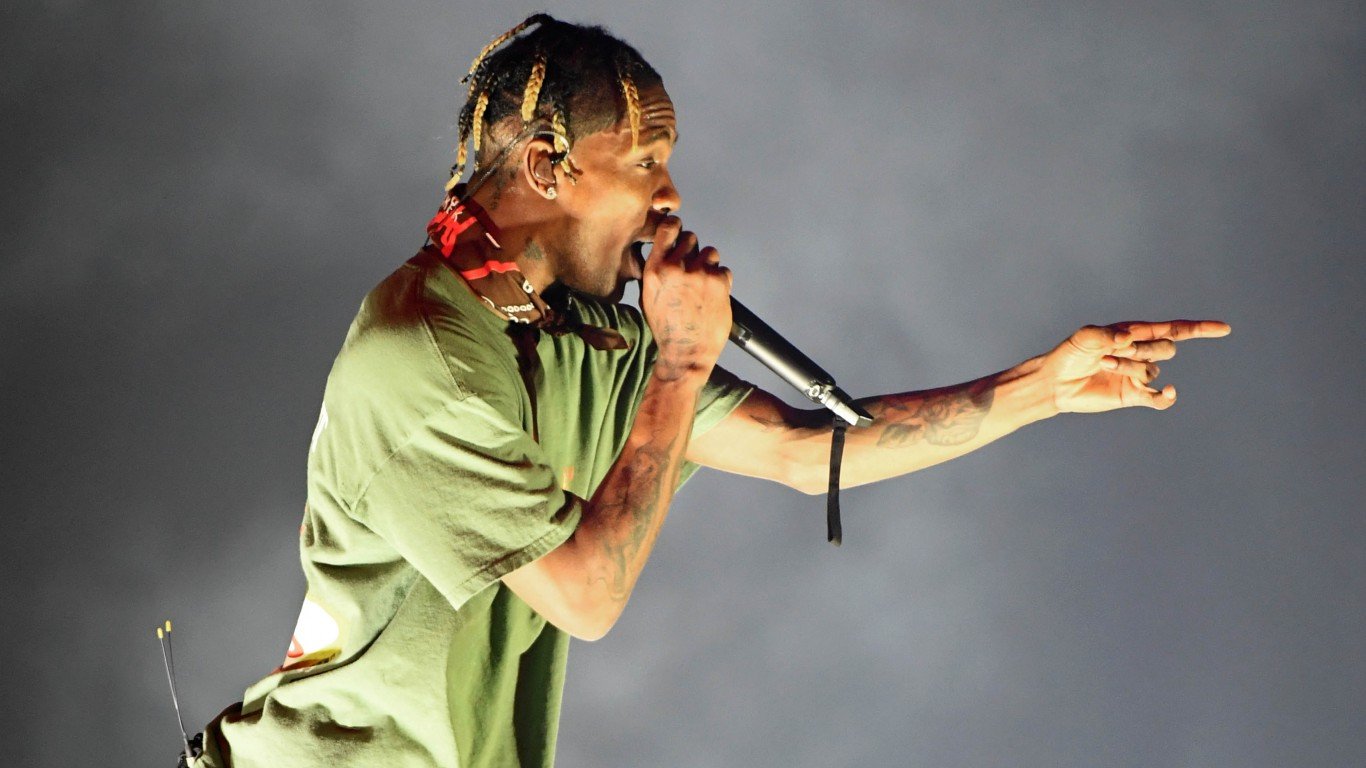
Travis Scott’s hard seltzer Cacti
In November, 10 people were killed in a crush event at Travis Scott’s Astroworld music festival. Shortly after, Anheuser-Busch announced it would discontinue Cacti — a hard seltzer collaboration it had with the rapper. Nike also postponed a shoe collaboration it had planned with Travis Scott in the wake of the tragedy.
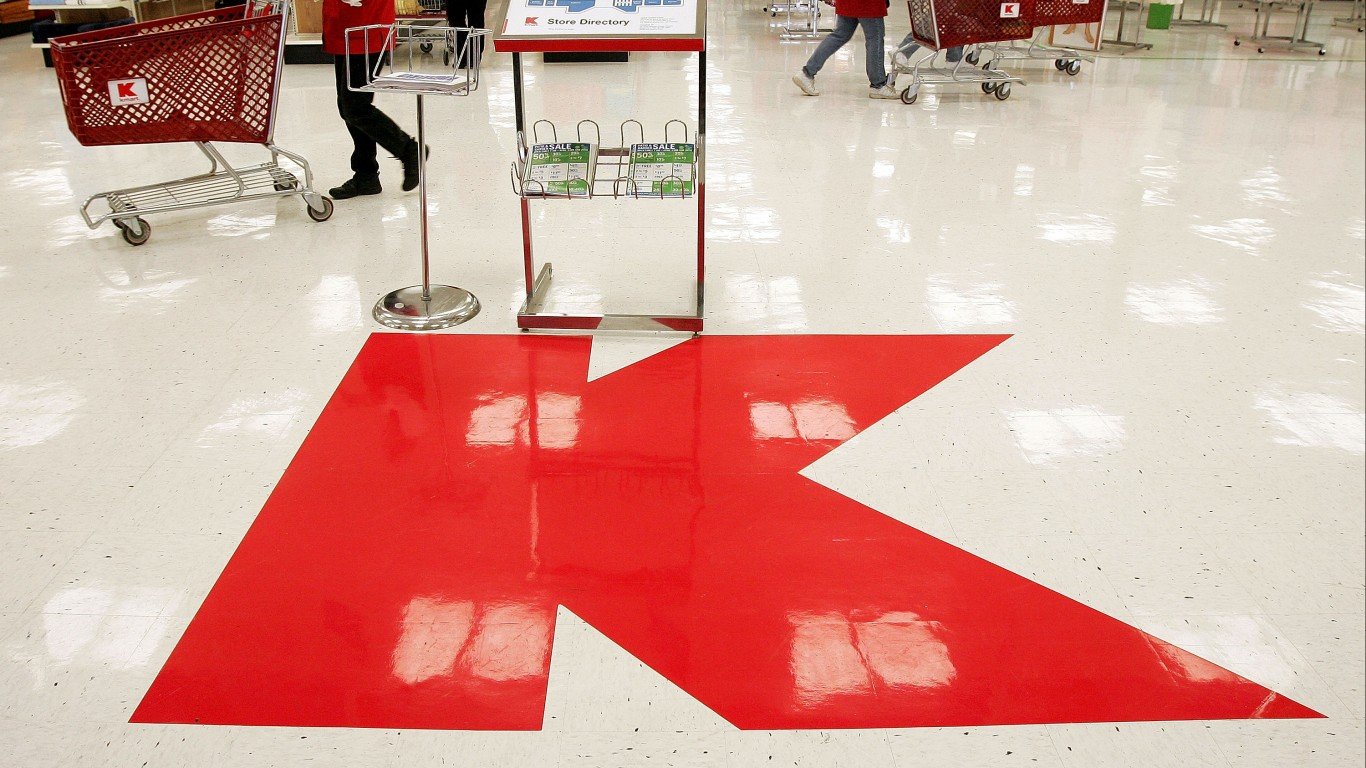
Kmart
The discount store chain, which peaked at 2,400 stores in the early 1990s, had fallen to 27 locations as of Dec. 15. Kmart, founded in 1899 as the S.S. Kresge Corp., failed to modernize its stores, and rivals Walmart and Target took away much of its market share.
Alex and Ani
Jewelry chain Alex and Ani filed for Chapter 11 bankruptcy protection in 2021. The company has been hurt by the pandemic, which reduced foot traffic to its physical stores. At the time of its bankruptcy filing, one-third of its stores had been closed because of the impact of the coronavirus.
The chain had been embroiled in a legal squabble with Bank of America, which claimed Alex and Ani defaulted on a $50 million credit facility. The chain sued the bank over an accusation of gender discrimination.
[in-text-ad-2]

Global Brands USA
The ongoing pandemic and supply-chain issues all contributed to the woes of Global Brands USA, whose North American unit filed for bankruptcy protection in July of 2021. In its filing, the fashion company, whose brands include Aquatalia, Ely & Walker, and Airband. Among its creditors are Kenneth Cole and Kenneth Cole and Authentic Brands Group.
Forever21
The bankruptcy protection case for Forever 21, the fast-fashion retailer that tumbled ever faster because of overexpansion, converted to a Chapter 7 liquidation in July after the company’s plan to reorganize failed to gain enough support from creditors.
The Los Angeles-based company, founded by Korean immigrants in 1981, soared to become a multibillion-dollar business with 800 stores by 2018. But it failed to adapt quickly enough to the changing tastes of young people and did not downsize its store footprint fast enough to avoid bankruptcy protection.
[in-text-ad]
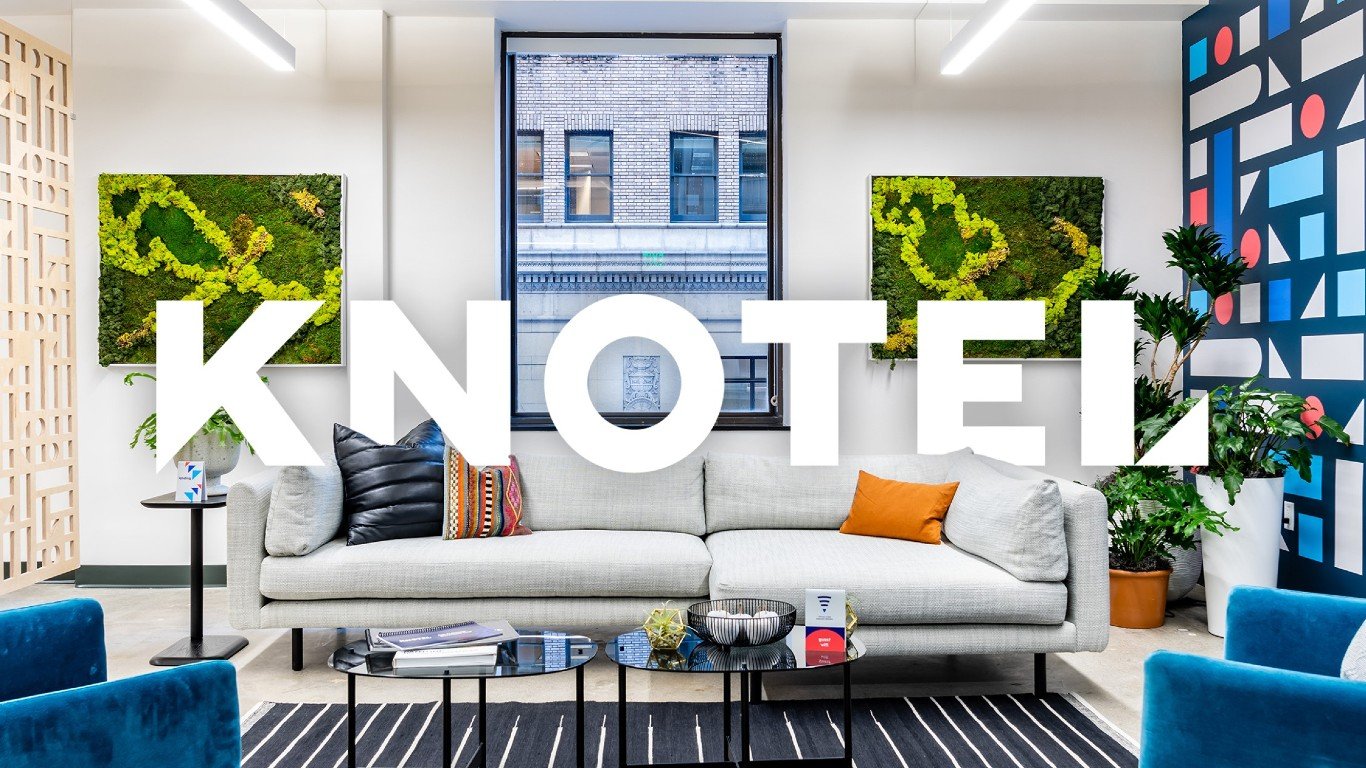
Knotel Inc.
Co-working space operator Knotel Inc. was flying high in early 2020 after it had been valued at $1.6 billion. Yet COVID-19 made large, shared workspaces untenable, and Knotel was forced to cut staff amid the pandemic. In early 2021, the company filed for bankruptcy and was sold to real estate company Newmark for a reported $70 million.
The company said it plans to stop operating in several U.S. cities but keep international locations open. Yet with wave after wave of COVID-19 variants affecting back-to-office plans, it is unclear when or if Knotel will be able to get back on track.
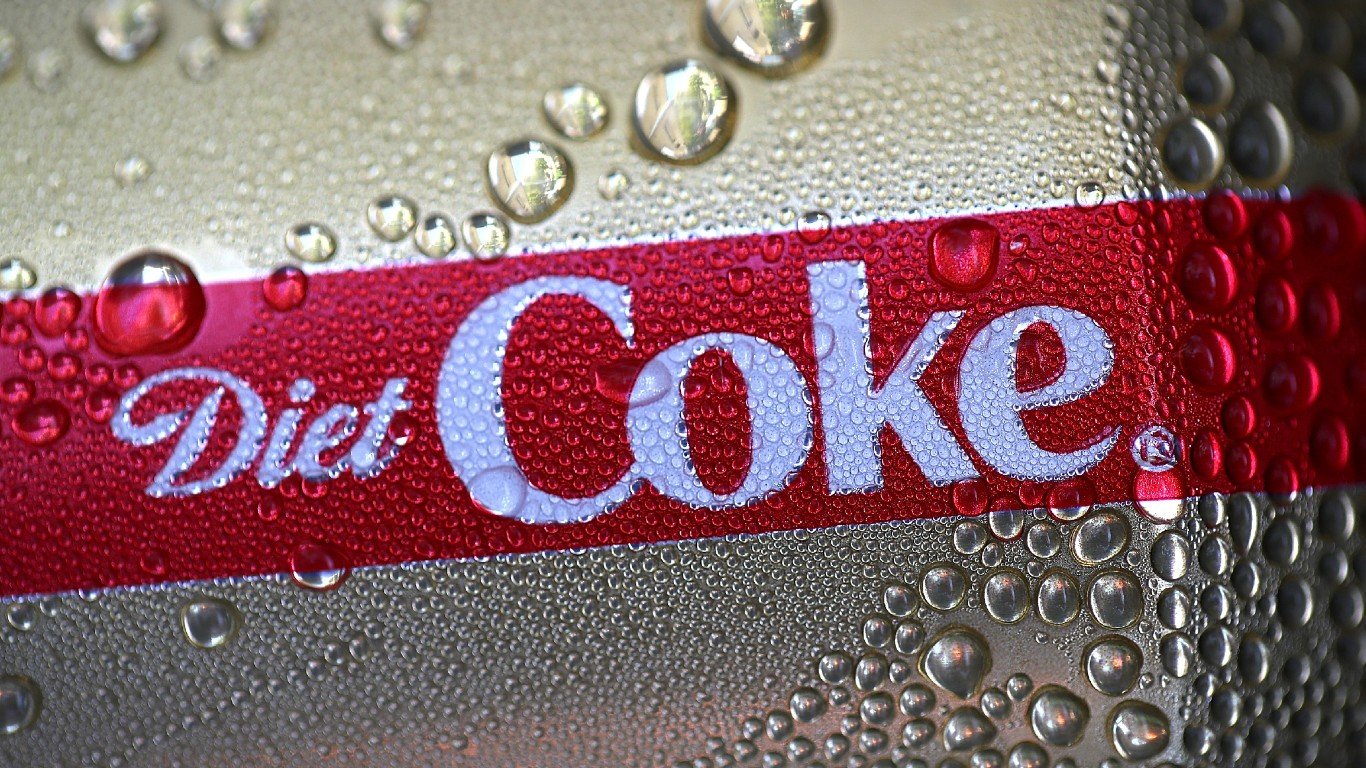
Diet
Among Coca-Cola’s library of catchy jingles was the slogan from the 1980s, “Just for the taste of it, diet Coke.” But it’s doubtful you’ll be seeing the word “diet” on soda cans or bottles of any beverage brand, including Coke and Pepsi, in the future. That’s because bottlers are removing the word from labels and rebranding the beverages as “zero sugar.” Marketing mavens at the companies have discovered that millennial and Gen Z soda imbibers don’t like the word “diet” and have decided to drop it.

Solstice Marketing Concepts
Solstice Marketing Concepts is the company behind the Solstice Sunglasses brand, a shopping mall staple that provides upscale eyewear. With foot traffic down significantly due to COVID-19, Solstice was forced to declare bankruptcy in February 2021.
It exited bankruptcy a few months later after shuttering stores and receiving a capital infusion, but Solstice could still struggle in the future. The company’s sales in early 2020 were less than half of what they were a year earlier, and with online shopping growing in popularity and more and more malls going out of business, the sunglasses business could struggle to recover.
[in-text-ad-2]

Learjet
Aircraft maker Bombardier is discontinuing its Learjet, the sleek mode of transportation favored by celebrities and the ultra-rich. A decline in demand, robust competition from less-expensive rivals such as Cessna, and demand for larger and more comfortable aircraft have cut into the appeal of the Learjet, created by American businessman Bill Lear in 1963.
Bombardier purchased Learjet in 1990. More than 3,000 Learjets have been built since 1963 and many remain in operation and will continue to be serviced. They seat up to nine passengers and can fly near the speed of sound.
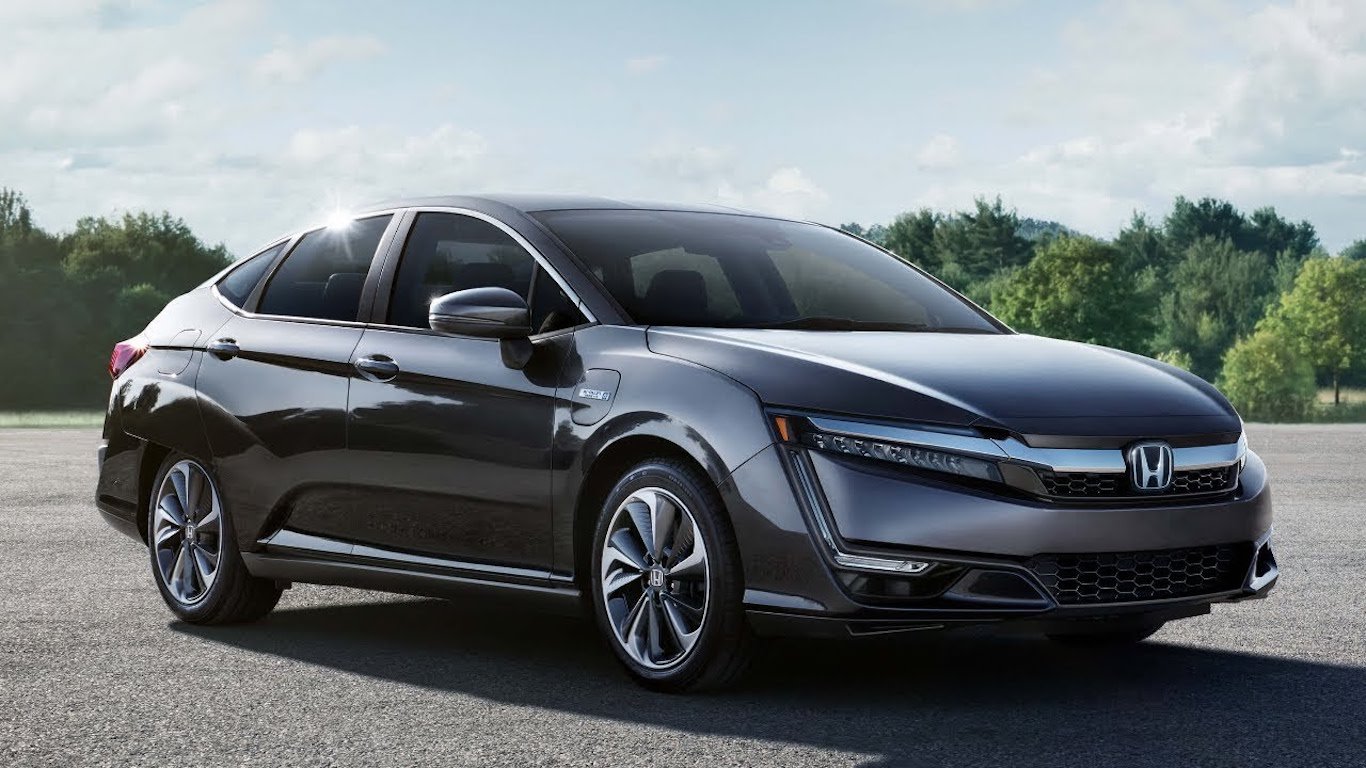
Honda Clarity
After the Japanese carmaker halted production of the Honda Clarity electric vehicle in 2020 — Honda’s only fully electric vehicle available in the U.S. — it decided to pull the plug on the plug-in and hydrogen-fuel-cell editions as well. The car will only be acquired by lease in 2022.
The Clarity arrived on the U.S. market in 2017. Honda has said it intends to make its entire vehicle fleet electric by 2040, with either battery electric or fuel-cell electric vehicles.
[in-text-ad]

Brazos Electric Power Cooperative
Texans suffered through a severe ice storm in February 2021 that cut power off to millions of state residents. In the aftermath, power supplier Brazos Electric Power Cooperative received a bill of $2 billion from the Electric Reliability Council of Texas, or ERCOT, which operates the state’s electric markets.
During the storm, energy prices surged to roughly 500 times the typical rate. ERCOT and BPC are litigating the bill in bankruptcy court, while ERCOT is being investigated for the massive power failure by local, state, and federal regulators.
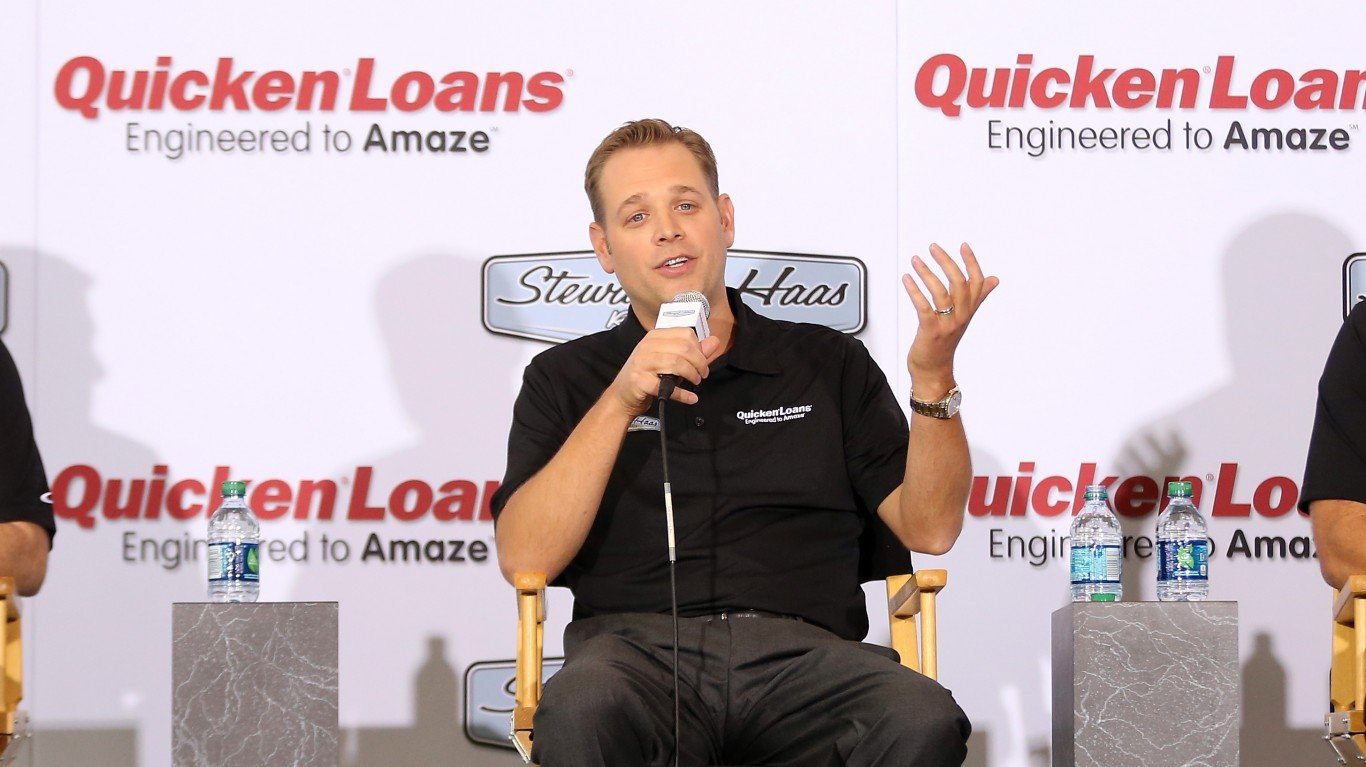
Quicken
Mortgage lender Quicken Loans changed its name to Rocket Mortgage in July as part of parent Rocket Cos. effort to align the mortgage company with its overall branding. The company has used celebrity pitchmen such as golfer Rickie Fowler and comedian Tracy Morgan to boost its visibility.

Sequential Brands
After filing for bankruptcy protection in August, the retailer that owns brands from Jessica Simpson, Joe’s Jeans, and Avia, sold some of its brands to Galaxy Universal, a portfolio company of Gainline Capital Partners, for about $330 million in October. Jessica Simpson herself bought back the brand bearing her name for $65 million.
[in-text-ad-2]
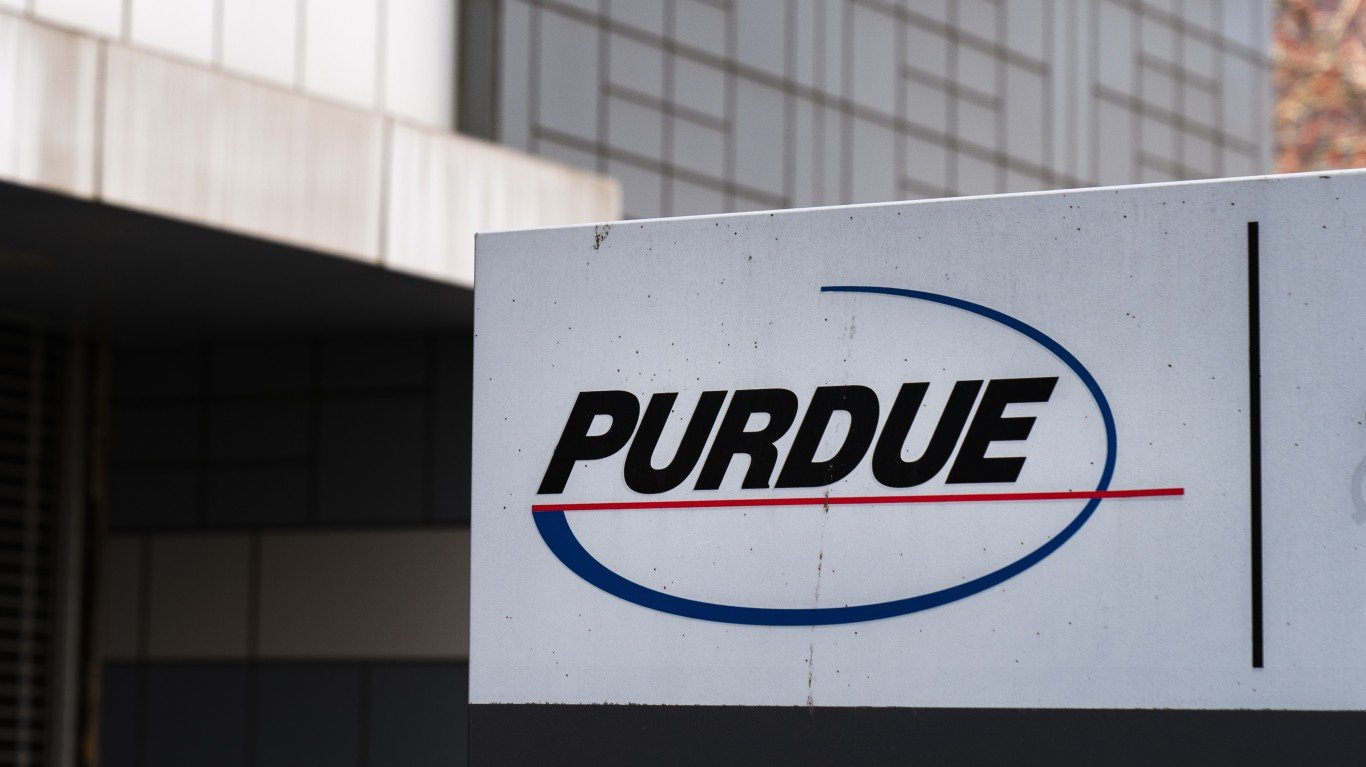
Purdue Pharma
Purdue Pharma, which has been accused of fueling the opioid epidemic, was all set to be dissolved and re-formed as a different company after it agreed to declare bankruptcy to pay out $4.5 billion to help those affected by opioids. The company contributed to the opioid crisis by marketing its prescription painkiller OxyContin without properly warning of its addictive nature despite being aware of it. Yet the agreement was thrown out by a judge because it shielded Purdue’s owners, the Sackler Family, from liability in the more than 800 civil cases in which they are named.
The Sacklers have appealed the decision, though regardless of the outcome, it appears that Purdue Pharma’s days are numbered. The company initially declared bankruptcy in 2019 and was set to emerge as a new company called Knoa Pharma that would still make the painkiller.
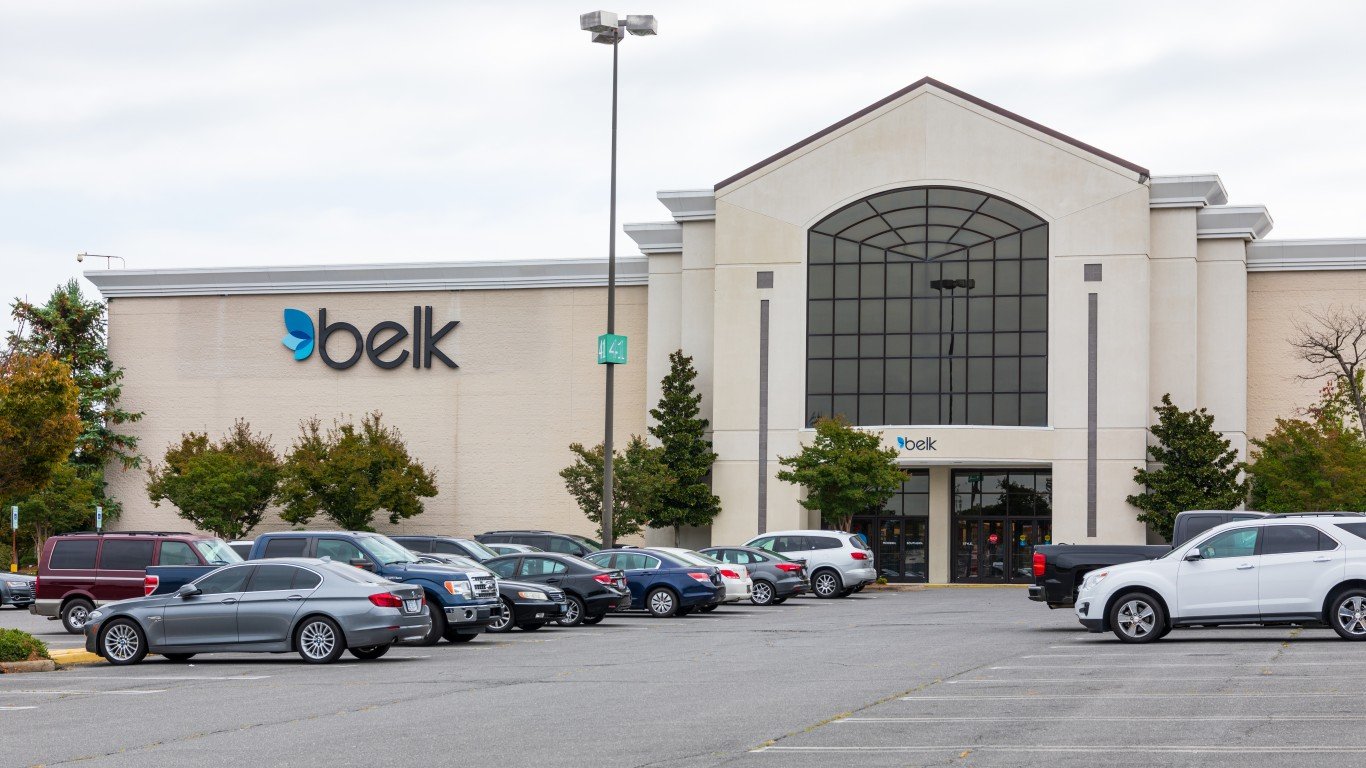
Belk
Southeastern department store Belk went through the entire bankruptcy process in just a few days during 2021, quickly restructuring, shedding about $450 million in debt.
Though it emerged from bankruptcy, Belk’s future is far from secured. The company has a poor credit rating of Caa2 and a negative outlook, according to Moody’s. This means the company could still be vulnerable to financial struggles. Belk is still reliant on its brick-and-mortar operations and lacks an e-commerce foothold, and it could be in for a rough 2022 if in-person shopping continues to be hampered by COVID-19.
[in-text-ad]
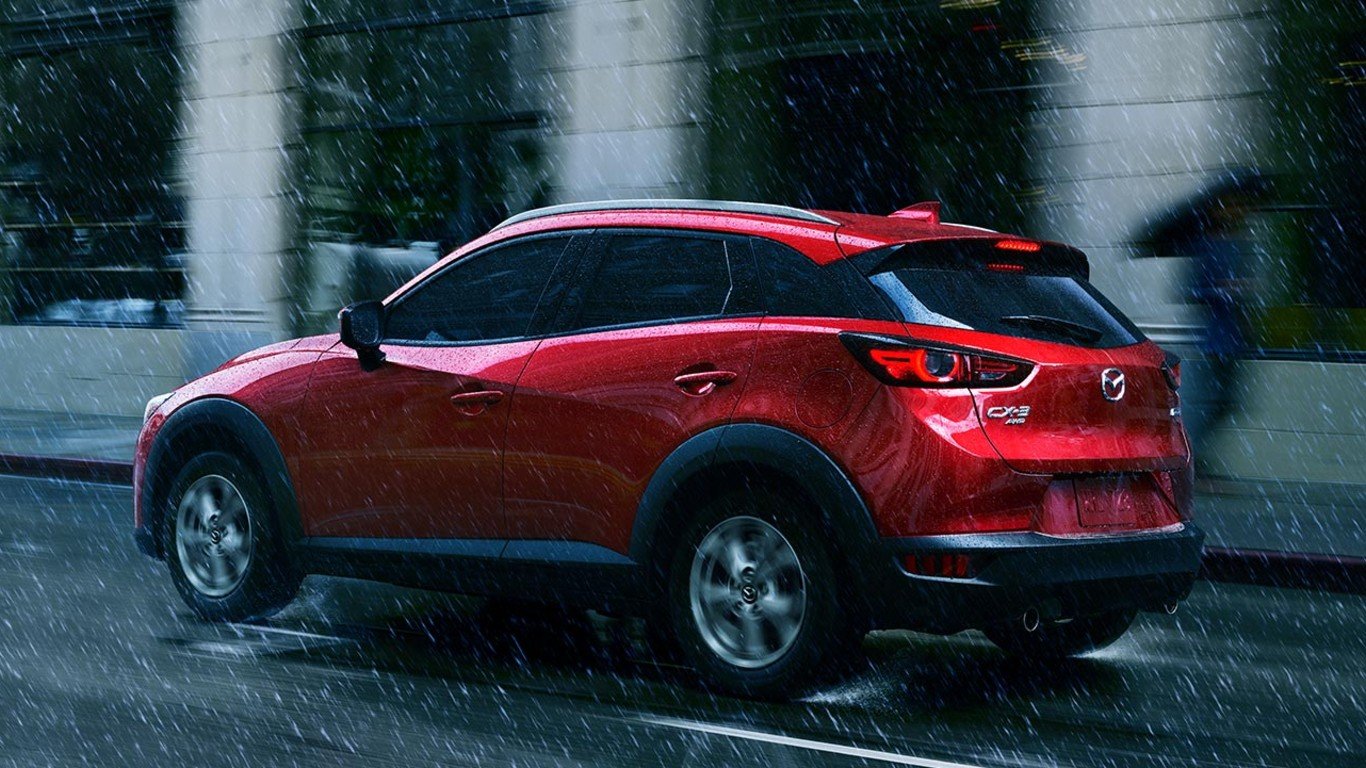
Mazda CX-3 and Mazda 6
Mazda announced it will discontinue the CX-3 and Mazda 6 for the 2022 model year in the U.S. The company referenced “shifting consumer needs and an ever-changing industry” in its announcement. Sedans like the 6 have waned in popularity recently as drivers are now more interested in SUVs and crossovers. Mazda is one of several automakers to cease making family sedans in recent years. As for the CX-3, it has been replaced by a more updated crossover, the CX-30.
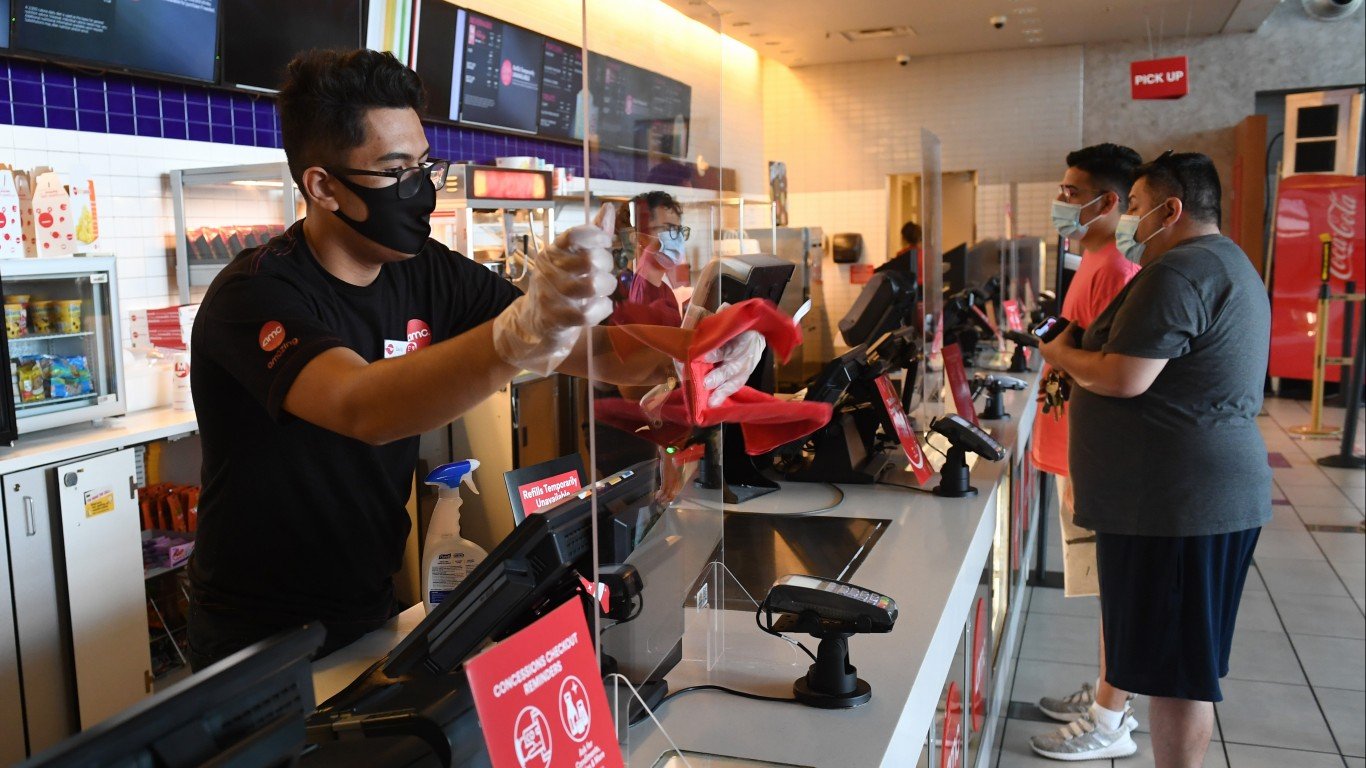
AMC
As the largest theater chain in America, AMC has struggled as COVID-19 caused shutdowns nationwide in the early days of the pandemic. Even when theaters reopened, people were less likely to go to the movies. Despite its troubles, AMC stock got an unexpected boost when it became a meme stock. Online investors decided to run a gamma squeeze, buying up AMC shares in May and June. Still, with COVID-19 cases continuing to surge at the end of the year, 2022 could be another rough year for AMC.
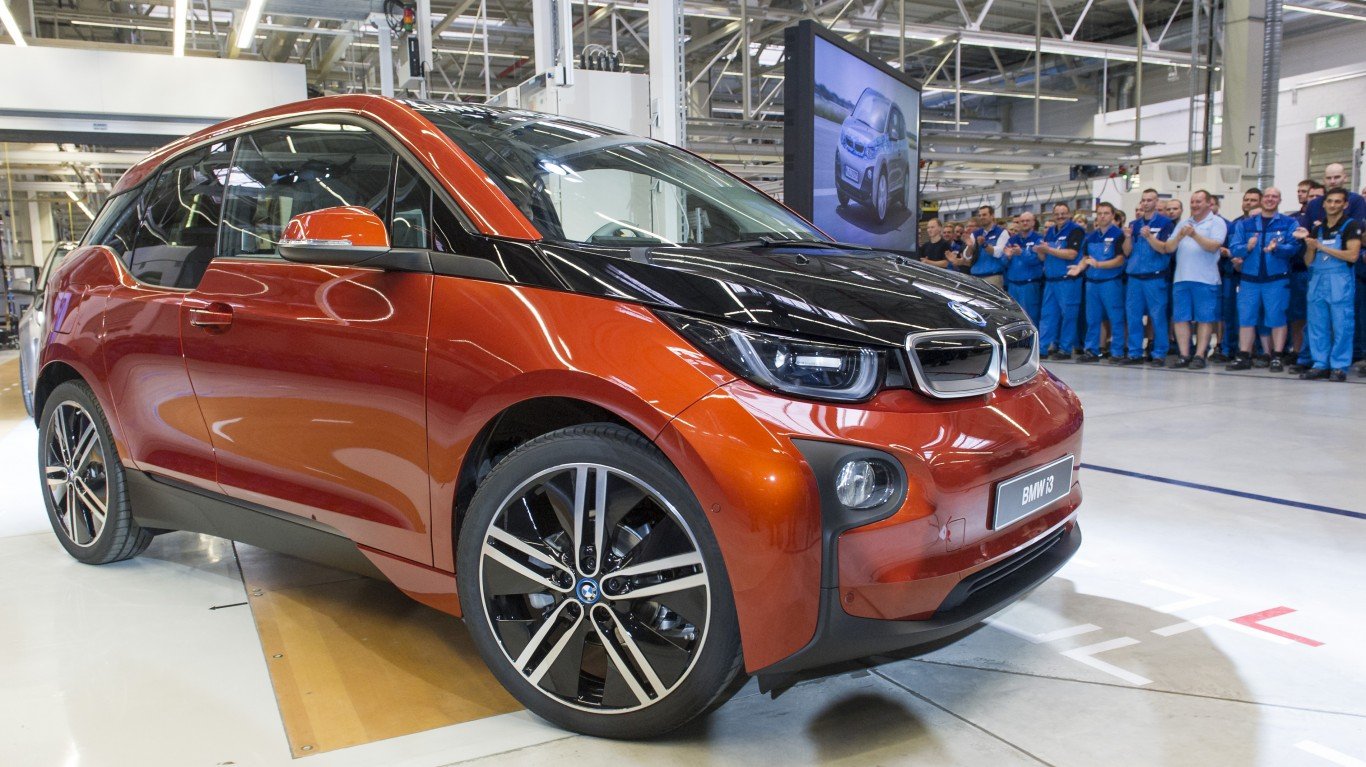
BMW i3
The i3 was BMW’s foray into the electric car market. The German luxury automaker decided to discontinue the model for 2022, investing in its next line of electric cars, like the i4 and iX. The i3 had a much lower driving range than other electric cars, despite being more expensive than more popular models like the Chevrolet Bolt and Hyundai Kona Electric.
[in-text-ad-2]
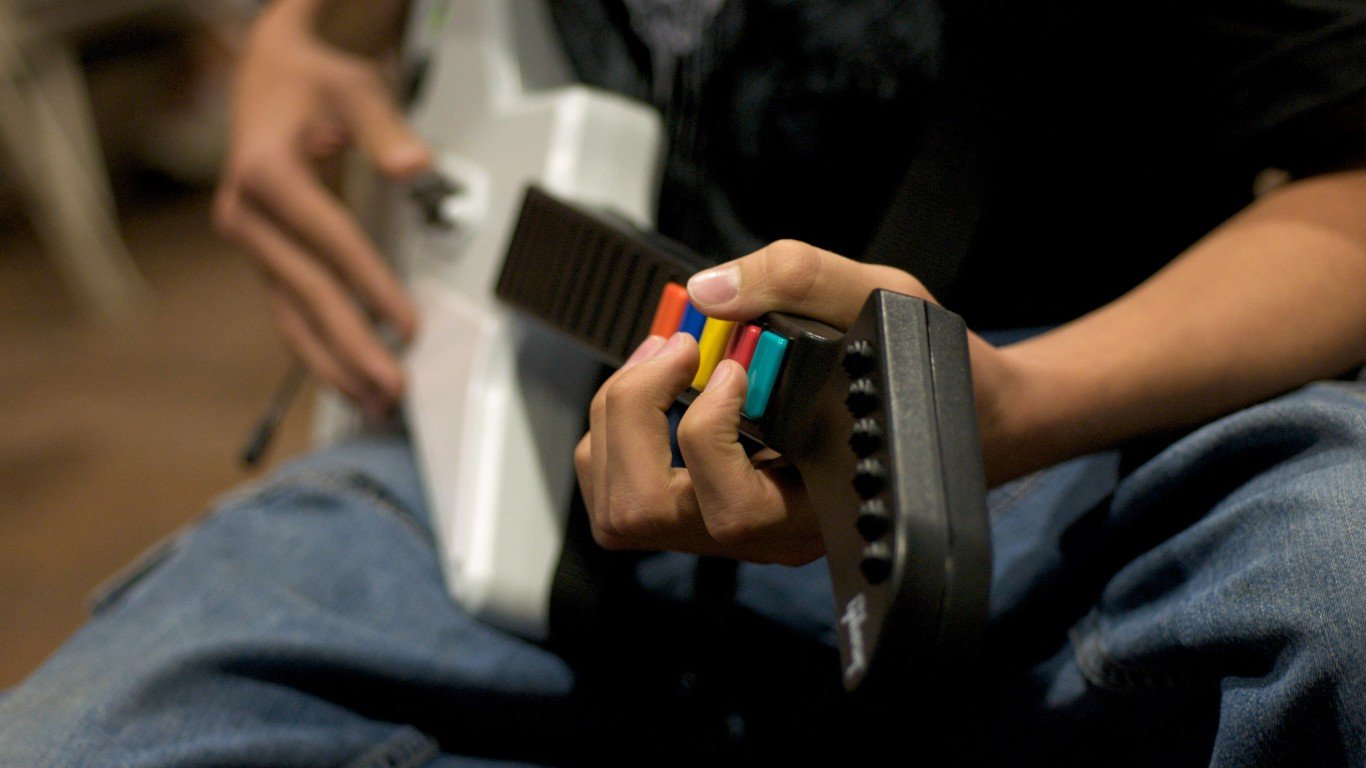
Vicarious Visions
Video game studio Vicarious Visions was on top of the gaming world in the early 2000s, creating
popular series like Tony Hawk’s Pro Skater, Guitar Hero, and a number of super hero games as well. In 2021, the company was acquired by another gaming company, Activision Blizzard. Though there was initially some speculation whether the Vicarious Visions brand would remain, Activision Blizzard announced the brand would be retired.
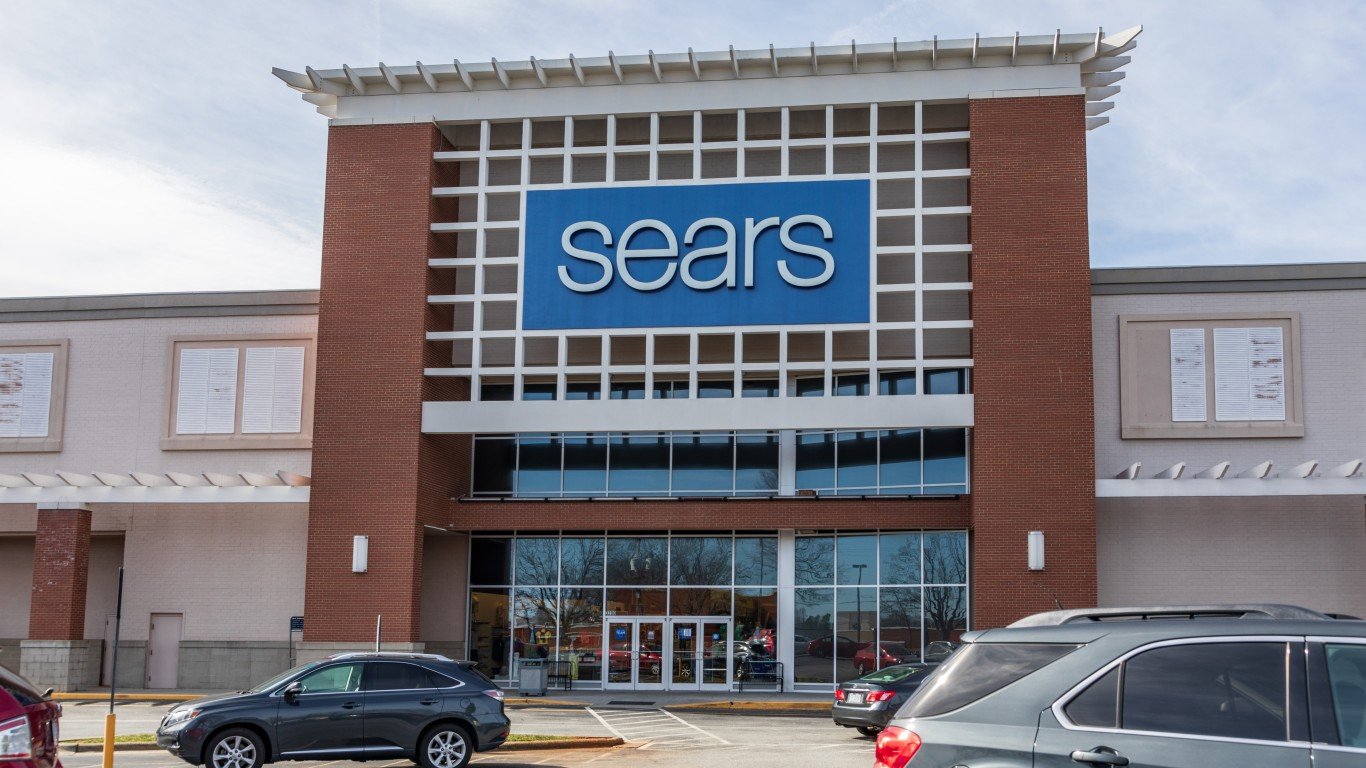
Sears
Sears has barely been able to stay afloat in recent years, shuttering thousands of locations as online retail and a massive debt load have taken their toll on the venerable department store. At the end of 2021, there were just 25 Sears stores left in America, and seven of those are scheduled to be closed soon.
[in-text-ad]
Brooks Brothers
Many companies are ditching white-collar dress requirements for employees, while others are letting employees work remote indefinitely. This shift is cutting into the bottom line for Brooks Brothers, the high-end clothing retailer that filed for bankruptcy in 2020.
The company had over 400 stores prior to the pandemic. After it was purchased following bankruptcy, its new owners would only commit to operating 125 locations. Brooks Brothers is now attempting to move into more casual clothes like sweaters and even athleisure as suits are falling out of favor with workers.
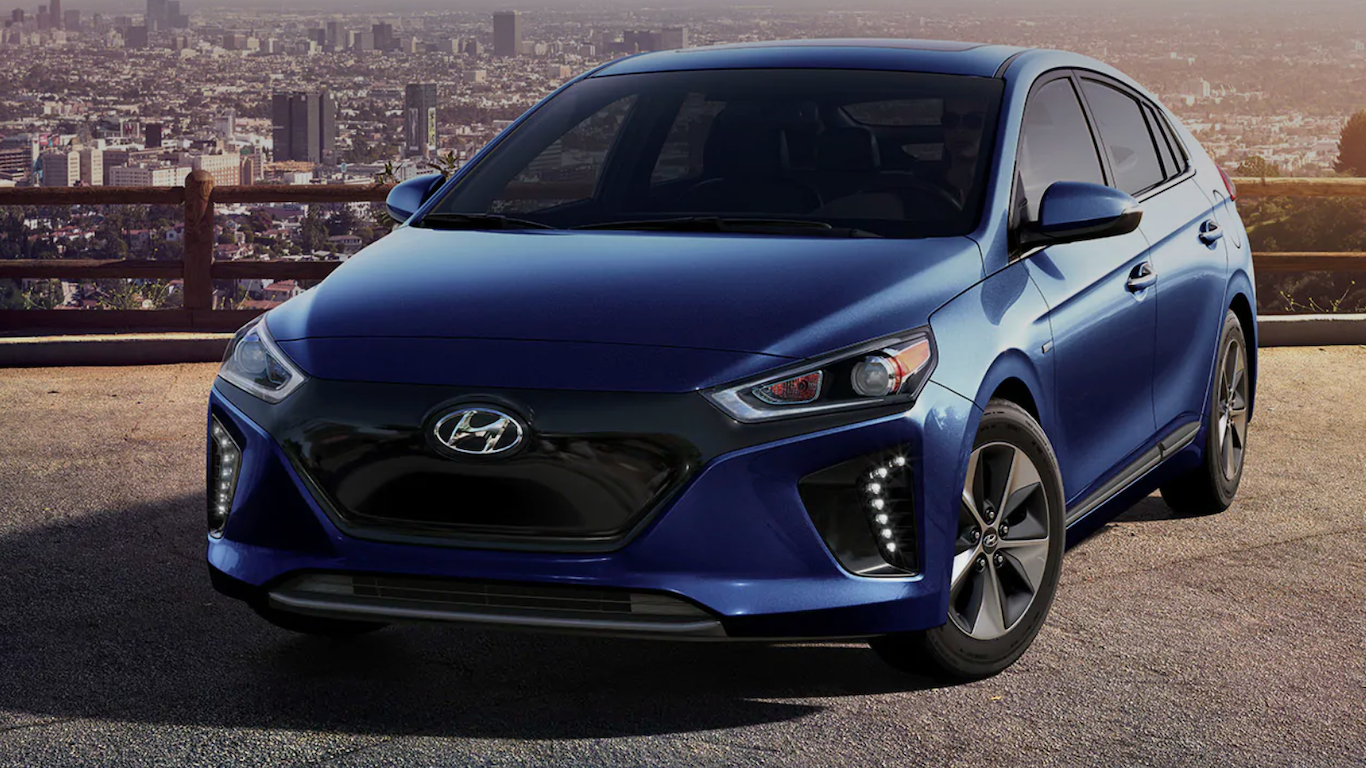
Hyundai Ioniq Electric
The battery-powered Ioniq Electric is being discontinued by Hyundai in 2022. The budget-pleasing electronic hatchback, which debuted in Korea in 2016, was sold in only 11 states, and its 170-mile driving range was dwarfed by competitors such as Chevrolet’s Bolt and Nissan’s Leaf. The Ioniq’s hybrid and plug-in hybrids will live on, however.
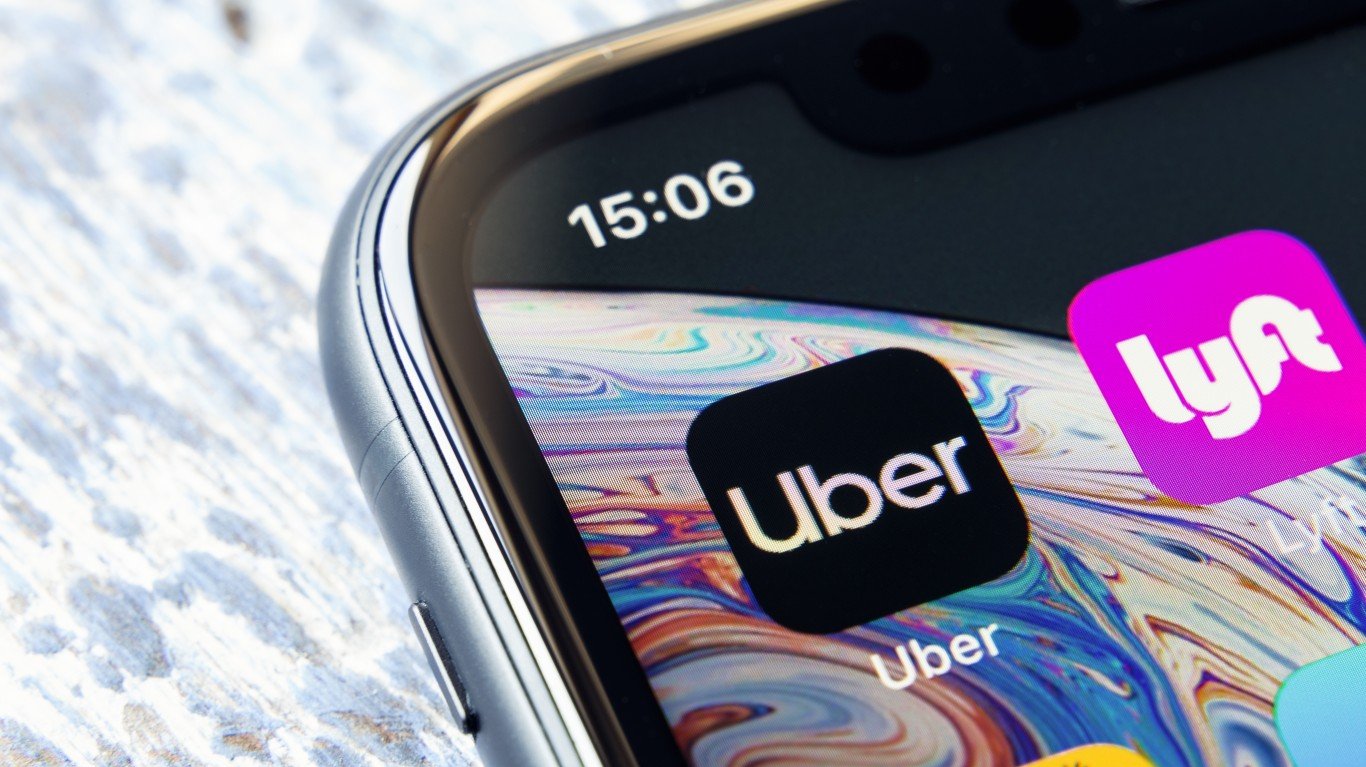
Two iPhone models
The iPhone XR and the iPhone 12 Pro are no longer available on Apple’s online store, other than versions that have been refurbished. Apparently, Apple is clearing the deck for iPhone 13. The iPhone XR, introduced in 2018, was billed as a less expensive option to the iPhone XS – $499 unlocked – with a variety of colors to choose from.
[in-text-ad-2]
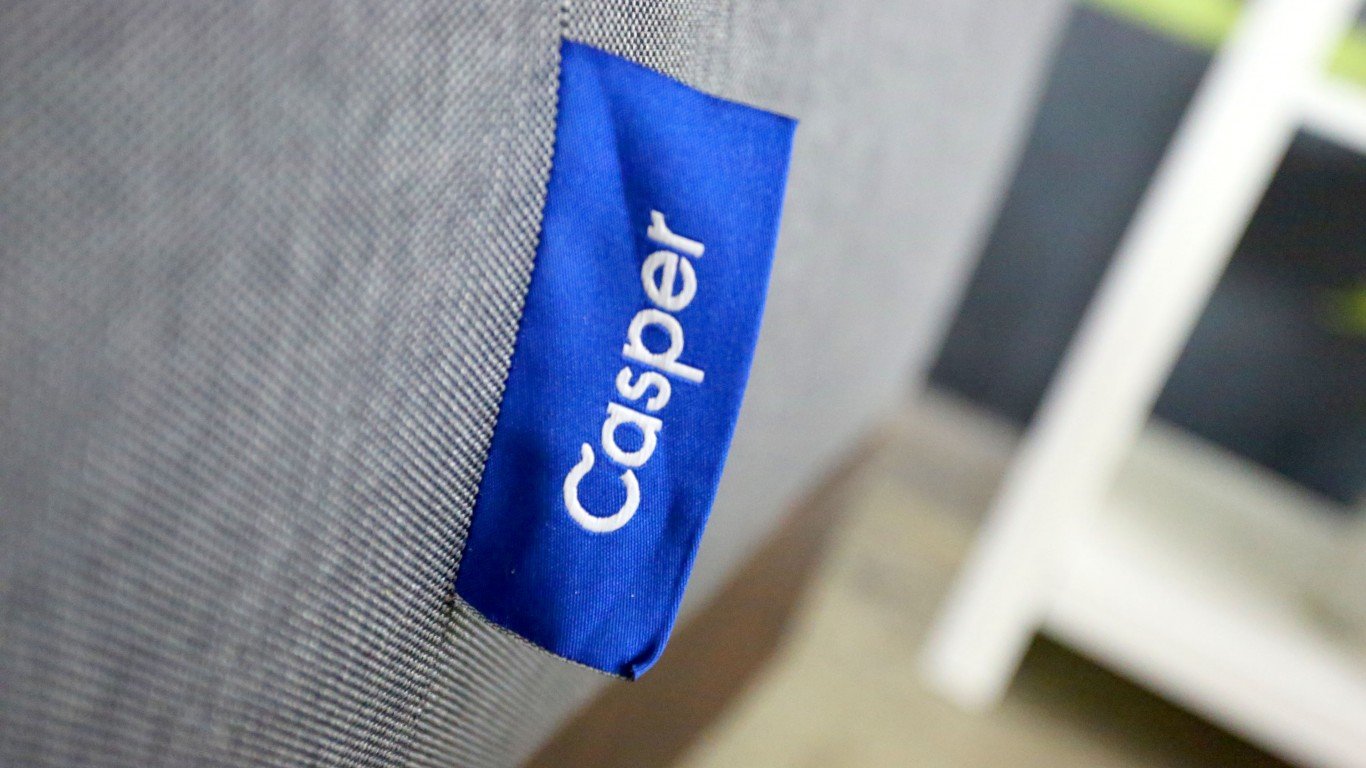
Casper Sleep
Casper became a household name when it advertised its mattresses directly to consumers through podcast ads. At one point, its valuation eclipsed $1 billion. The company went public in February 2020, with shares priced at $12 apiece.
Around its IPO, the company struggled with losses in the tens of millions of dollars per quarter — not unheard of for startups, but Casper’s net losses increased as well, which the company blamed on supply chain issues. Casper’s share price dipped to $3.19 before the company announced it was purchased by a private equity firm and would become a private company, with its future in doubt.
Take This Retirement Quiz To Get Matched With A Financial Advisor (Sponsored)
Take the quiz below to get matched with a financial advisor today.
Each advisor has been vetted by SmartAsset and is held to a fiduciary standard to act in your best interests.
Here’s how it works:
1. Answer SmartAsset advisor match quiz
2. Review your pre-screened matches at your leisure. Check out the
advisors’ profiles.
3. Speak with advisors at no cost to you. Have an introductory call on the phone or introduction in person and choose whom to work with in the future
Take the retirement quiz right here.
Thank you for reading! Have some feedback for us?
Contact the 24/7 Wall St. editorial team.
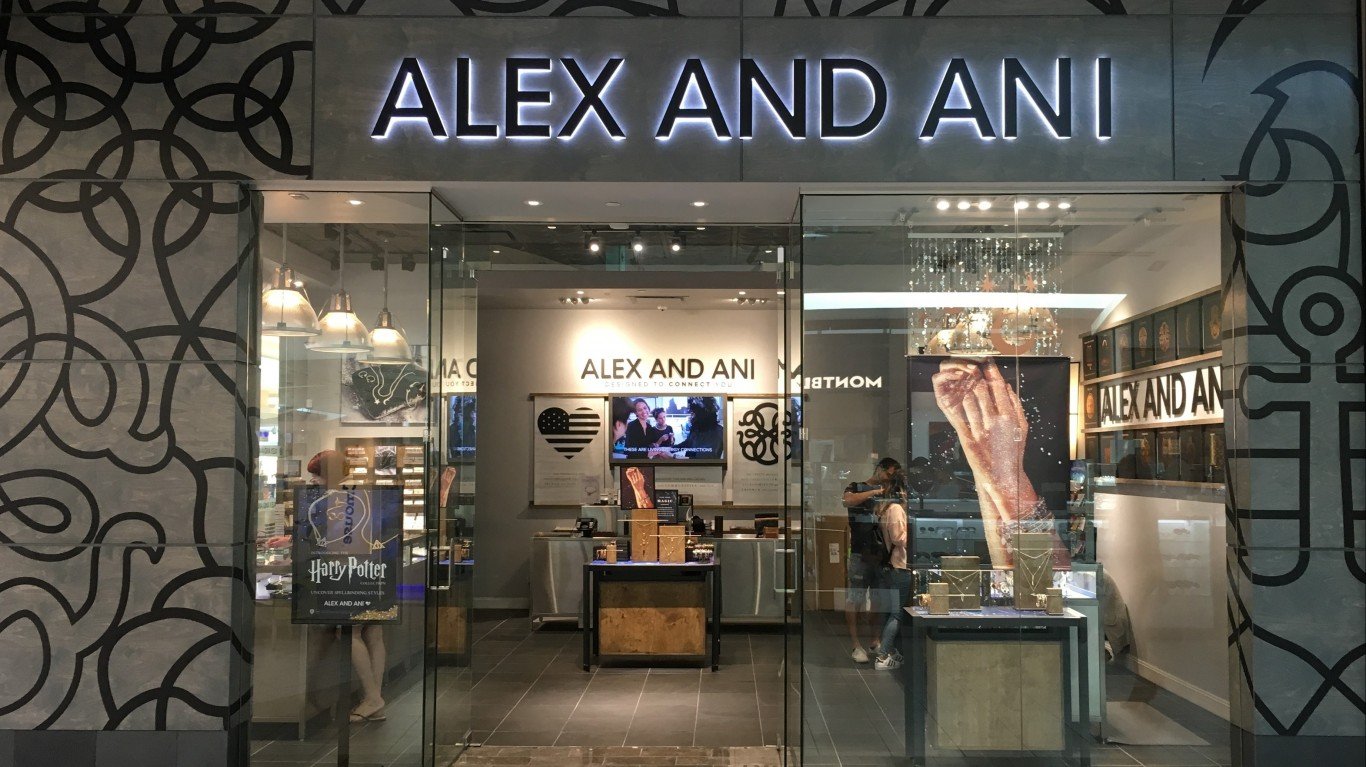
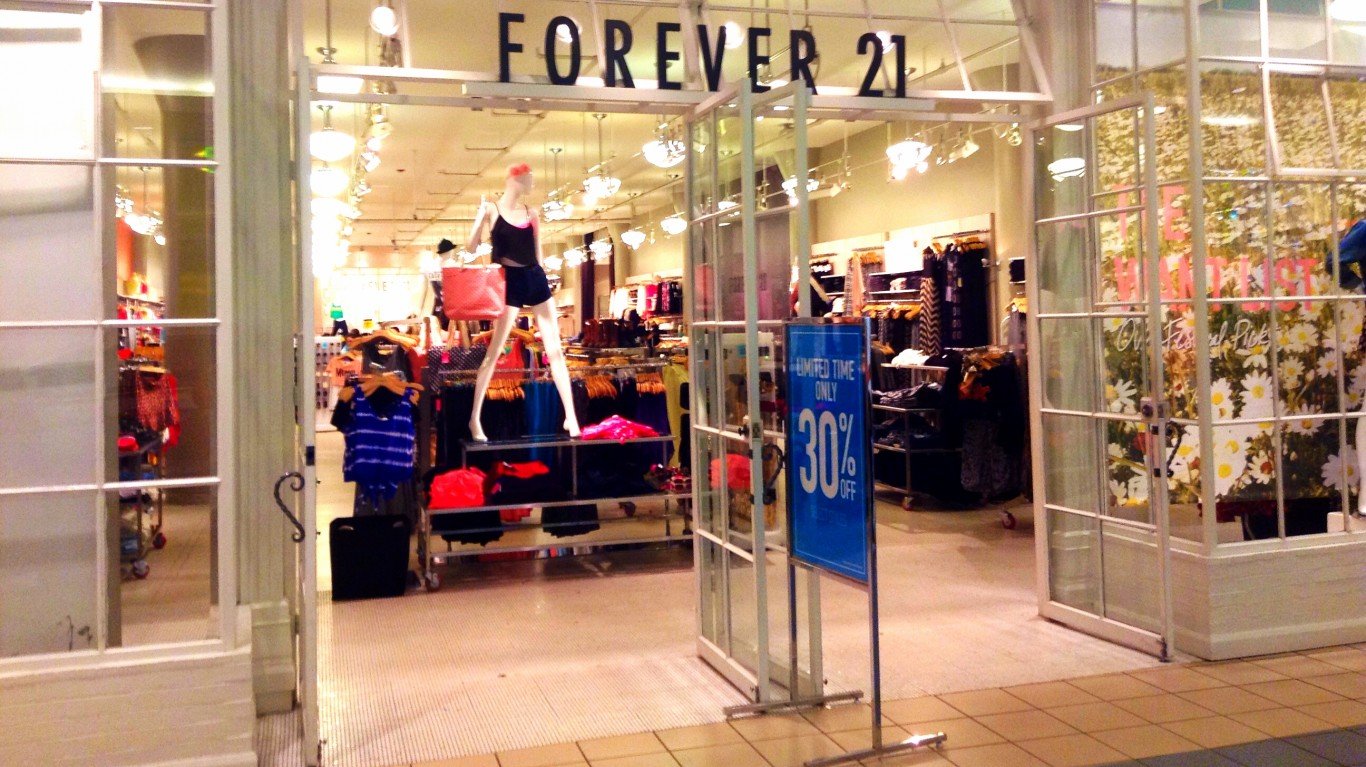
 24/7 Wall St.
24/7 Wall St. 24/7 Wall St.
24/7 Wall St.